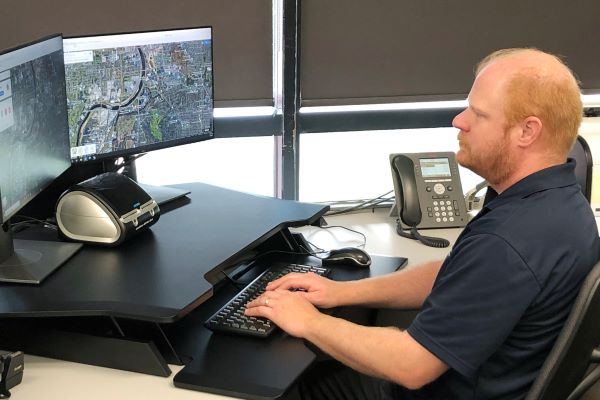Advancing Autonomy
UDRI receives Air Force award to support advanced autonomous capabilities
The University of Dayton Research Institute has been awarded a $88 million contract from the Air Force Research Laboratory for research and development to advance, evaluate and mature Air Force autonomous capabilities. The contract was awarded with initial funding of $1.8 million.
Through the five-year program, dubbed “Soaring Otter,” researchers will support the Air Force in its quest to increase its capabilities in autonomy by maturing autonomy technologies—including machine learning, artificial intelligence, neural networks, neuromorphic computing and data exploitation—from lab to field use.
These technologies—some of which are modeled after human information-processing systems—allow autonomous systems to gather information, process the information in order to “understand” the images or data it is collecting, and then use the information to solve a problem or execute an action to achieve a goal, said principal investigator Patrick Hytla, senior image processing engineer in UDRI’s applied sensing division.
Air Force applications for autonomous systems include intelligence, surveillance and reconnaissance; cybersecurity; and command and control systems.
“The Air Force is increasingly employing the science of autonomy to solve complex problems related to global situational awareness, resilient information sharing and rapid decision making, and UDRI researchers have developed specialized expertise directly related to these areas and to the Soaring Otter program,” Hytla said. “Our expertise includes machine learning; neuromorphic computing; positioning, navigation and timing; open system architectures; automated decision making; and flight test planning, execution and analysis.”
According to the Air Force, the scope of the program will include seven focus areas: autonomy development and testing, evaluation of autonomy capabilities, novel computing approaches, new application spaces, open system architectures for autonomy, autonomy technology integration and testing, and maturing system support.
“UDRI will lead a team of partners with expertise in these and complementary areas, and who have deep knowledge of how real-world requirements should inform and guide the development of novel autonomy research and development solutions with the greatest potential for transition to operational use.”
November 11, 2021

